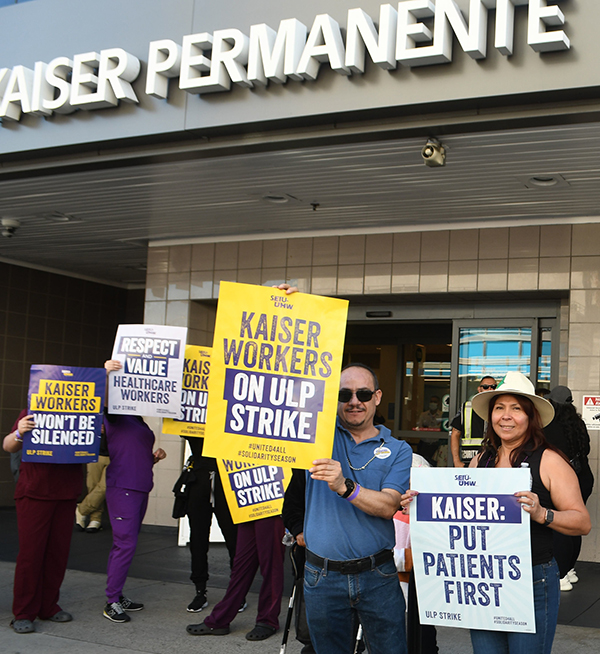Wave Wire Services
LOS ANGELES — Gov. Gavin Newsom signed into law Oct. 13 a bill by a Los Angeles legislator that will set a statewide $25-an-hour minimum wage for heath care workers.
Senate Bill 525, authored by state Sen. María Elena Durazo, D-Los Angeles, will require stepped minimum wage increases beginning next year and increasing at varying rates, depending on the type of health care facility, until the wage reaches $25 per hour.
“Thank you, Governor Newsom, for signing SB 525, a historic investment in our health care workforce,” Durazo wrote on X, formerly Twitter.
The bill was heavily backed by the Service Employees International Union-United Healthcare Workers West union, which has been leading initiative drives in many cities — including Los Angeles — to put localized $25 minimum wages in place for health care workers.
According to the union, the new law will lift wages for about 455,000 workers across the state. It noted that about 75% of those workers are women, and 76% are workers of color. Almost half of the affected workers are Latino, according to the union.
“Today California is putting a stop to the hemorrhaging of our care workforce by ensuring health care workers can do the work they love and pay their bills — a huge win for workers and patients seeking care,” Tia Orr, executive director of SEIU California, said in a statement. “Californians saw the courage and commitment of healthcare workers during the pandemic, and now that same fearlessness and commitment to patients is responsible for a historic investment in the workers who make our health care system strong and accessible to all.
“We applaud Governor Newsom for signing this bill and making history for California as the first state to lift the floor on health care worker wages to $25.”
The California Hospital Association has been actively opposing SEIU-UHWW’s localized ordinances, saying they applied only to select types of health care facilities and created uneven salary levels for workers. But the association supported the state legislation, saying it will “create a stable and predictable path for these increases.”
According to the association, the state legislation will preempt the local minimum wage measures and provide “more reasonable phase-in schedules for three tiers of hospitals,” while also putting limits on the contract workers affected by the wage increase.
“Without SB 525, we know that dozens more hospitals will be thrown into deeper peril as $25 per hour ballot initiatives are likely to pass in cities throughout California and, in addition to a single big jump in wages, would prohibit hospitals from reducing the number of workers or any other personnel action to address higher wage costs,” according to the association.
According to SEIU-UHWW, the legislation will set wages:
• At large public and private health facility employers and dialysis clinics at $23/hour in 2024, $24/hour in 2025, and $25 in 2026.
• At public and private hospitals with a “high governmental-payer mix,” rural independent hospitals, and small county facilities, at $18/hour in 2024, increasing by 3.5% until it reaches $25 in 2033.
• At community clinics at $21/hour in 2024, $22 in 2026 and $25 in 2027.
• And at other covered health facilities at $21/hour in 2024, $23 in 2026 and $25 by 2028.











